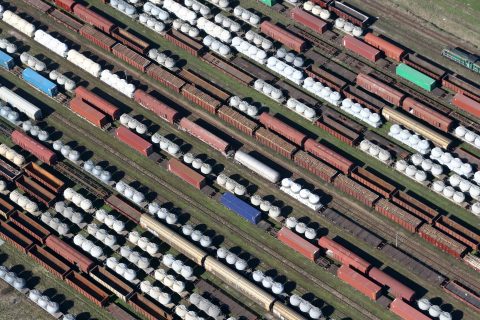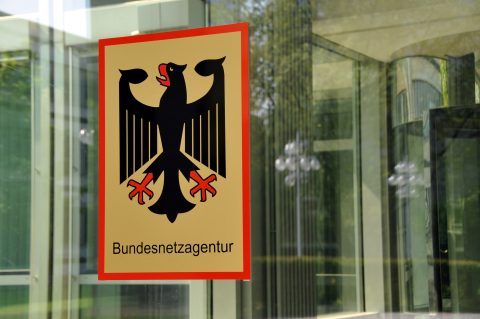Port of Rotterdam: throughput drops up till 20% this year due to coronavirus

The Port of Rotterdam Authority is anticipating a drop in cargo throughput of 10 to 20 per cent this year, as a result of the corona crisis. This says CEO Allard Castelein in the quarterly report published today. The figures indicate that throughput in the first three months have already fallen by 9.3 per cent to 112.4 million tonnes, compared to the same period last year.
A drop in demand due to the corona crisis will only become apparent in April, Castelein says. “This forecast depends on the duration of government measures and the speed of recovery of production and world trade,” the port chief notes. In the Netherlands, there is a close-to-lockdown situation that lasts at least until 28 April. The measures may be relaxed a little after this period, but certain restrictions will remain in place.
Bright spots
The CEO also sees bright spots. For example, the transhipment of containers was virtually the same and the transhipment of biomass continued to grow. There was also an increase in the transshipment of iron ore, biomass, Liquefied Natural Gas (LNG) and other liquid bulk. 16.7 million tonnes of dry bulk was transhipped in the first quarter. That is 14 per cent less than in the same quarter in 2019. There was a large decrease in transhipment of coal (-39.6 per cent), almost 3 million tons less.
Container handling in tonnes in the first quarter was almost the same (-0.3 per cent in tonnes, -4.7 per cent in TEUs) compared to the same period last year. Deepsea and feeder containers showed an increase while shortsea showed a 4.5 per cent decrease. The underlying causes were the weaker economy in Europe in the last six months and the stagnating world trade as a result of trade conflicts.
Corona crisis
The effects of the corona crisis became noticeable at the end of March due to less supply from China after the partial lockdown there in February. Ships take four to five weeks to travel the distance, so the effect in Rotterdam became evident later. The container volumes from Asia was 2.8 per cent lower than in the first quarter of 2019.
Ro-ro transhipment decreased by 7.3 per cent compared to the first quarter of last year. As a result of the coronavirus outbreak, there was less transport of people and goods between the United Kingdom and Rotterdam in March 2020. It should also be noted that March 2019 saw record transshipment due to hoarding in the run-up to a then-impending Brexit . Transhipment of other general cargo was slightly lower (-3.2 per cent) as a result of the economic downturn.
Dry bulk
On a positive note, ore throughput increased by 15.7 per cent. Steel companies bought more stock in the past quarter than last year, while production has not increased. Other dry bulk decreased by 21 per cent. This decrease was due to postponed construction projects and the supply of sand and building materials required for this. The first quarter also saw a reduced supply of minerals as a result of declining industrial production in Germany.
Biomass throughput also increased, by 106 per cent. This doubling was caused by the use of biomass in the Amer 9 power station in Geertruidenberg, being increased by 80-90 per cent. The transshipment of oil products decreased by 32.8 per cent. There was again a sharp drop in fuel oil trade between Russia and Singapore, for which Rotterdam has been the transshipment point in recent years. Instead, much of the fuel oil went directly from Russia to the United States for refining.
Diesel and LNG
Diesel fuel transhipment also decreased. For diesel exports, this was caused by increased local use for ships as a result of new IMO regulations for marine engine emissions. In the past quarter, the supply of crude oil reduced by 8 per cent. In addition, the inventories built up last year were used for production in the past quarter.
LNG throughput increased by 18 per cent to more than 2 million tonnes. In particular, more liquefied natural gas was transferred to the European gas network. The low price resulted in more use of gas for electricity production. Transhipment growth of 710,000 tonnes (9.3 per cent) was seen in other bulk goods. This increase mainly related to an increase in chemical products and biodiesels. The port of Rotterdam is increasingly becoming a central logistics location in Europe for these products, with both imports and exports to other European countries.
Antwerp
The port of Antwerp reported an increase in throughput of 4 per cent earlier this week. Container transhipment there grew by 9.5 per cent in TEU and 9.4 per cent in tonnage, according to the Antwerp Port Authority. The Flemish port also benefited from streams that emanated from Le Havre and other French ports, which dealt with long-term strikes. Freight transhipment amounted to 59.1 million tonnes.
You just read one of our premium articles free of charge
Want full access? Take advantage of our exclusive offer





